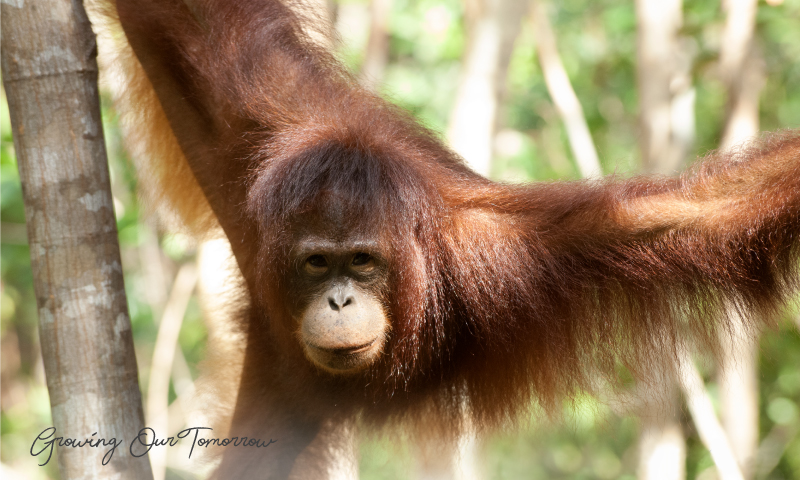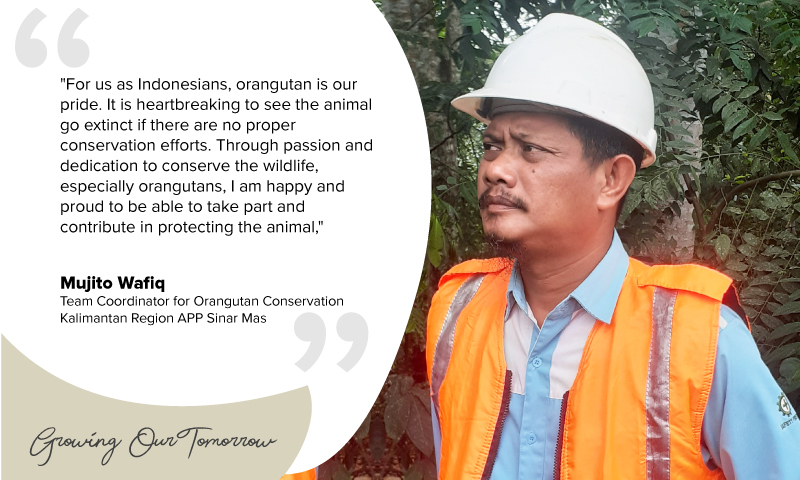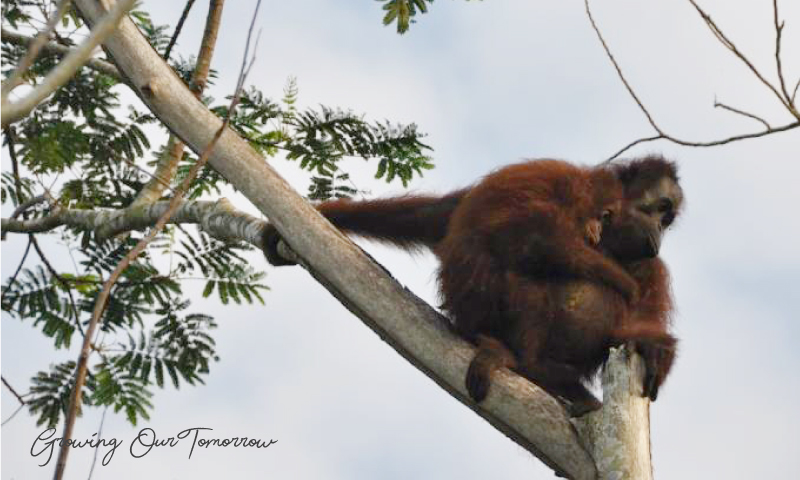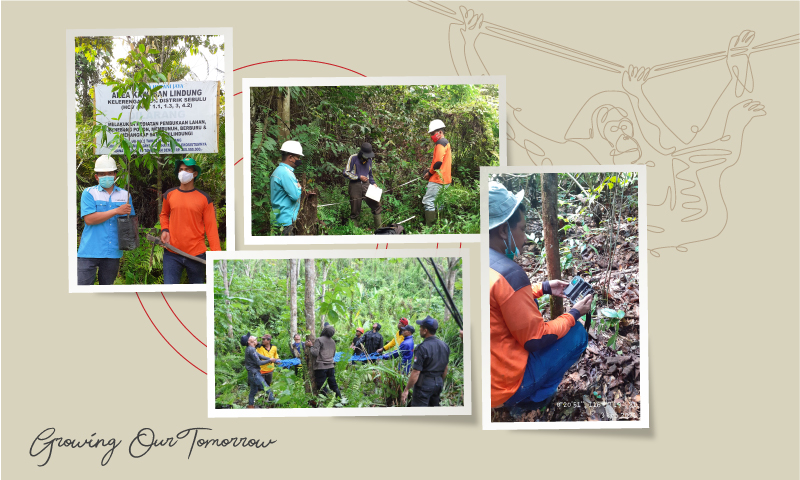
Orangutan is the only great apes that live in Asia, while three of their relatives are in Africa. As an endemic primate in Borneo and Sumatra, its existence in the rain forests is considered as one of the flagship animals due to its role in the dispersal of seeds to maintain the balance of the forest ecosystem. However, orangutan is in critical condition and threatened with extinction because its population continues to decline. Along with multi stakeholders, contributing in the survival of orangutans in the wild is a priority for Asia Pulp & Paper (APP) Sinar Mas Conservation Team in its pulpwood concession areas in Borneo.
Mujito Wafiq joined APP Sinar Mas in 1995. He started to work in the General Affairs department, but his interest in conservation has led Mujito join the orangutan conservation team for almost 11 years. Mujito works to monitor the movement of animals around the concession areas which cover two districts, Kutai Kartanegara and East Kutai (Kutai Timur). Besides conducting regular patrol, Mujito and his team also regularly socializing the importance of the role of orangutans to the local community in order to prevent human-wildlife conflicts and poaching.

Conservation is a new field for Mujito, armed with eagerness to learn and thirst for knowledge, he participates in various trainings to equip himself with knowledge and practices. Among them, there are training on conservation management, orangutan monitoring and rescue, SMART patrol implementation for protected area management training, and many others. “Working is not only for earning a living but also for experience. For us as Indonesians, orangutan is our pride. It is heartbreaking to see the animal go extinct if there are no proper conservation efforts. Through passion and dedication to conserve the wildlife, especially orangutans, I am happy and proud to be able to take part and contribute in protecting the animal,” said Mujito.
Despite many challenges that he encountered, due to wide monitoring area, it does not dampen his enthusiasm and the team to continue to support in maintaining the viable population of orangutans. According to Mujito, he found out there are many interesting facts that he learned about orangutans when he was monitoring and rescue. Here are some interesting facts about orangutans:
• Indonesia has three separate species of orangutan - the Sumatran orangutan (Pongo abelii), the Bornean orangutan (Pongo pygmaeus), and the Tapanuli orangutan (Pongo tapanuliensis)
• Human and orangutan genomes are 97 percent similarly identical
• Orangutans fall under Appendix I of the Convention on International Trade in Endangered Species of Wild Fauna and Flora (CITES), meaning orangutans are species that are protected by national law and may not be traded;

• The behavior between orangutan mothers and babies is very similar to humans. The mother will protect her baby even to death if conditions are very threatening;
• Orangutan is a keystone species that plays a vital role as a seed disperser that can maintain the sustainability and diversity of plants in the forest;
• Orangutan home ranges are around lowland forest and peatlands because they produce more fruit trees;
• The dominant mature male orangutans have large flappy cheek-pads, known as flanges and a large pendulous throat sack that can produce loud ‘long calls’, presumably to let other orangutans know their whereabouts.

APP Sinar Mas through its conservation team is committed to protect wildlife in an effort to habitat restoration. One of APP Sinar Mas' commitment to orangutan conservation is to provide an orangutan habitat corridor or ‘orangutan corridor’, which connects the protected area within the concession areas with the national park area in East Kalimantan. Degraded areas within the corridor are restored by habitat conservation and restoration, using orangutan food plants. This habitat corridor can ease the movement of orangutans.
Additionally, understanding the importance orangutans existence for ecosystem sustainability is the key to maintaining its population. Through Collaboration, socialization, monitoring, and other preventive measures continue to be carried out to increase mutual awareness of the importance of orangutan conservation to establish harmonious coexistence between human and wildlife.
.jpg/0a625d16-64a9-d285-4873-5d62918f59c7/)

